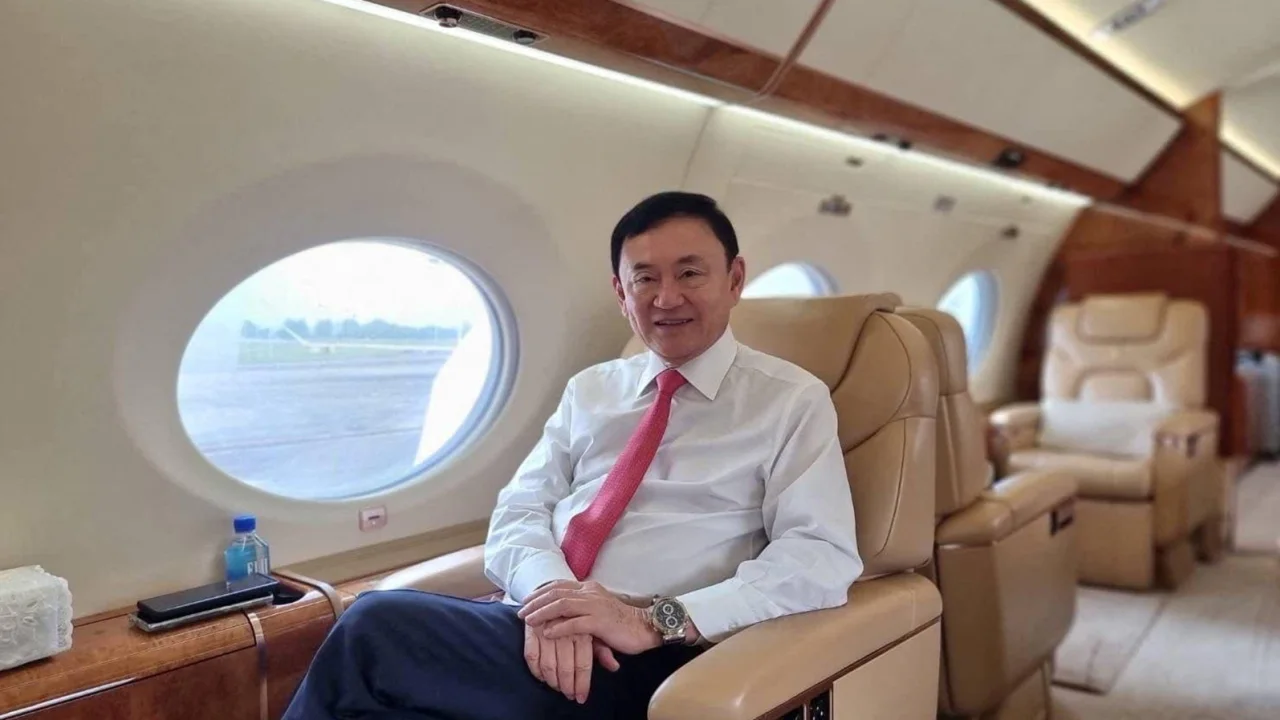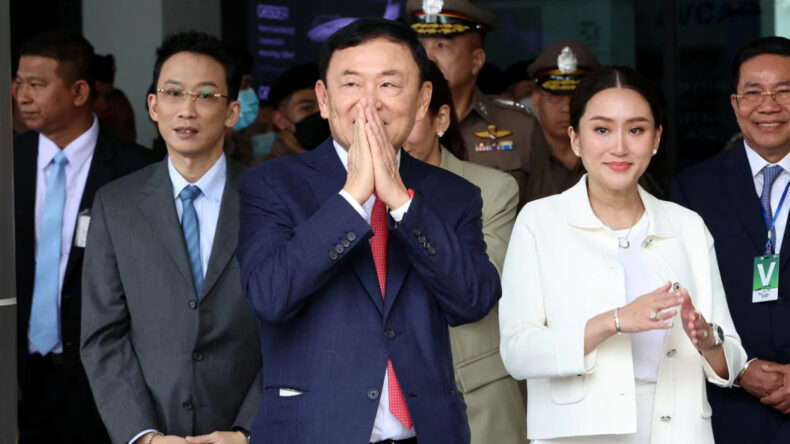Former minister Thaksin Shinawatra, who has been on the run for more than 15 years, made his first official return to the nation on Tuesday. His arrival reintroduced a towering and contentious figure at a time when the kingdom’s sometimes chaotic political environment is in a new state of change.
Previously the owner of Manchester City Football Club and patriarch of a well-known political dynasty, Thaksin served as prime minister from 2001 until he was overthrown in a military coup in 2006 while in New York for a UN summit.
He briefly visited Thailand again before leaving the country in 2008 due to a corruption conviction, and the Supreme Court sentenced him to eight years in prison upon his reappearance on Tuesday. Analysts disagree as to whether he will actually serve that time.
With legislators trying to break the political impasse that has existed for more than three months following the election victory of a popular progressive party that has been thwarted by the kingdom’s political elites, Thaksin’s homecoming after so many years coincides with an anticipated parliamentary vote for a new prime minister.

Thailand’s Former Minister: Where is he now?
Thaksin, 74, had been teasing his return for weeks, but the first concrete evidence of it appeared in videos of his sister Yingluck Shinawatra, who also lives in self-exile, hugging her brother before he boarded a plane in Singapore on Tuesday morning.
At 9 a.m. local time, thousands of supporters followed Thaksin’s private plane as it touched down at Bangkok’s Don Mueang International Airport. About 90 minutes later, he and his kids left the airport’s private jet terminal, welcomed a group of fans, and then bowed before a picture of Thailand’s monarch. Paetongtarn, Thaksin’s daughter, published a picture of her father holding his newborn grandchild for the first time.
The Thai Corrections Department is now in charge of Thaksin, who was brought into custody. In a press conference, Corrections Department spokesperson Sitthi Sutivong stated that after a medical examination, doctors determined that he was in a “fragile group” and that due to his health issues (a history of heart disease and a lung infection from Covid-19), he would be held in a separate room under 24-hour observation.
Although Thaksin has the option to request a royal pardon, neither he nor his family have done so, according to Sitthi. A separate visiting room would also be set up for Thaksin due to the enormous number of visitors who wish to see him, he added.
Thailand: A Divided Nation
Thaksin built a political force that has dominated Thai politics in some capacity for the past 20 years with his populist policies that catered to Thailand’s rural and working classes.
Srettha Thavisin, a real estate magnate, will be the candidate put up by the Thaksin-backed Pheu Thai party, which finished second in the May poll.
Pheu Thai on Monday, in a surprising about-face, reached an agreement with its old military adversaries in an effort to win enough parliamentary support to establish a government.
Despite emphasizing opposition to the military in its election campaign, Palang Pracharath and the United Thai Nation Party are part of its 11-party coalition. Both of those parties are connected to the military dictatorship that overthrew a democratically elected government led by Thaksin’s sister Yingluck and are associated with coup leader and outgoing prime minister Prayut Chan-o-Cha.
In addition, the action goes against the wishes of the vast majority of Thai voters who supported progressive parties in the May election, dealing a severe blow to the military-backed elite that has dominated Thailand since the coup.
Thaksin Shinawatra’s rise to power
Thaksin, a billionaire in the telecoms industry, came to power in 2001 after winning a resounding election. Thanks to his offers of free healthcare, debt relief, and his anti-establishment position, he became popular among the rural poor. Eventually, corporations flocked to him as well, partly because of his patented “Thaksinomics,” which helped usher in a period of economic boom.
The policies, which were aimed at rural Thais, who make up the majority of the population, and included loans and debt moratoria for farmers as well as subsidized fuel prices and greater access to healthcare and education, were loathed by the wealthy elites and conservatives who accused Thaksin of being a risky and corrupt populist.
Following his removal in 2006 and the threat of a prison sentence due to corruption-related charges, Thaksin enforced his own exile. Despite being physically absent, Thaksin continues to have a significant impact on Thai politics.













